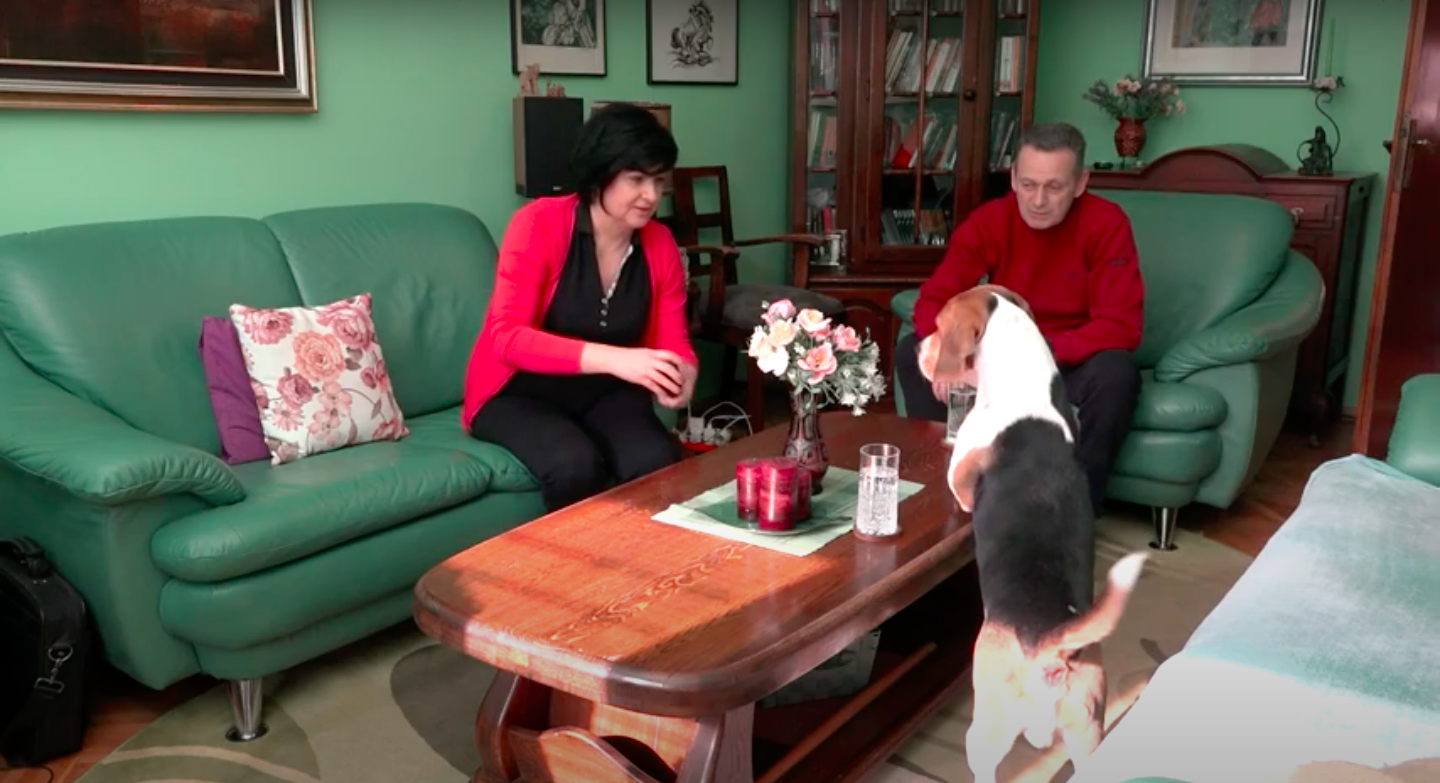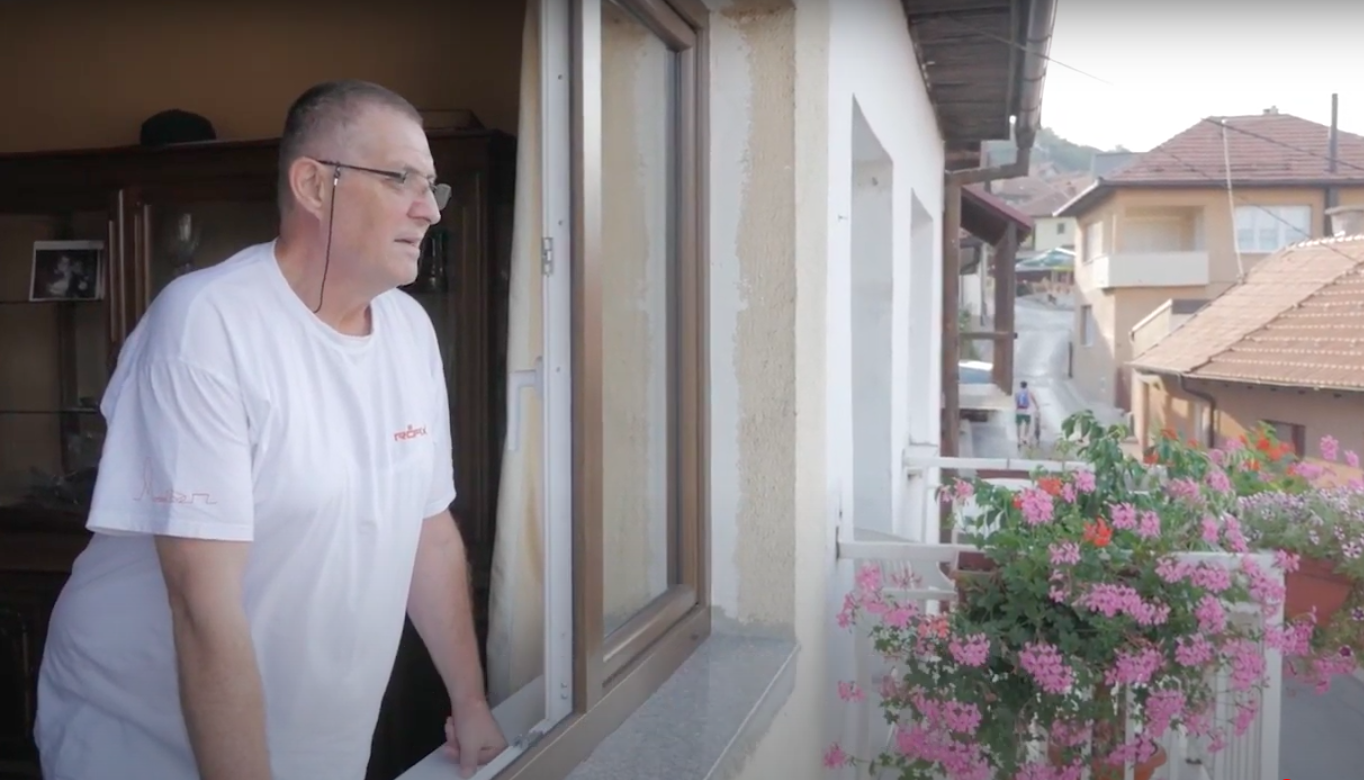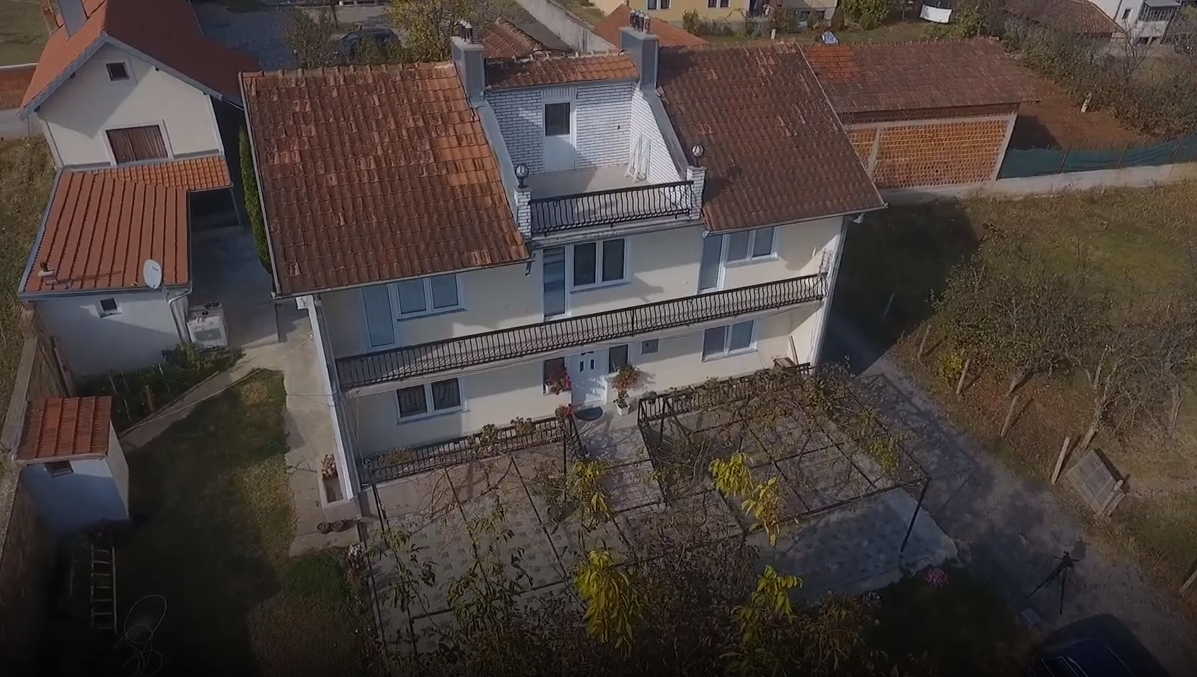 en
en Keeping residential energy bills low during coronavirus pandemic
 Photo: EBRD client Toma Janakievski, with his family in North Macedonia
Photo: EBRD client Toma Janakievski, with his family in North Macedonia
EBRD, EU, Austria and the WBIF support green investments in the Western Balkans
Dusan Stojković is one of millions of citizens across the Western Balkans who is spending more time at home as a result of the coronavirus pandemic.
His life has changed significantly, as it has for many others. During this volatile spring period, instead of switching the heating off when his family goes to work and school, the thermostat is now turned up on colder days when temperatures drop close to zero. Keeping the heating on allows the family to stay warm and comfortable while working from home, cooking, playing board games, watching TV and doing homework with the kids.
A few years ago, being in his large Serbian home was not always comfortable for Mr Stojković and his family. When temperatures outside dropped, his home cooled down fast and his electricity bills would spike. The house was draughty and the family worried about their health.
So, in 2017, Mr Stojković decided to improve the energy efficiency of his home. He secured a loan under the EBRD’s Green Economy Financing Facility (GEFF), which works with local banks to on-lend funds to residential borrowers for investments in residential energy efficiency and renewable energy solutions.
Although such home improvement can noticeably reduce energy use and the long-term associated costs, the initial financial outlay can be high. To help homeowners invest in green solutions, GEFF provides technical assistance and grants, supported by the European Union (EU), the Austrian Federal Ministry of Finance and beneficiary countries cooperating under the Western Balkans Investment Framework (WBIF).
Green solutions save energy and cut bills
Mr Stojković replaced draughty windows with new PVC ones to minimise the amount of heat that escapes. He also insulated his home to keep it warm during winter and cool in the summer.
More than 3,700 households across the Western Balkans made similar long-sighted decisions to invest in green technology under GEFF. Some replaced traditional incandescent lighting with LED bulbs that last longer and consume as much as 80 per cent less energy. Others installed heat pumps and solar systems to move away from polluting forms of electricity altogether.
“During the coronavirus pandemic, we are spending more time at home. Having energy efficiency technologies installed makes it easier and more comfortable. We no longer have to worry about energy consumption and bills,” commented Mr Stojković.
The impact on energy bills can be substantial. As another client, Toma Janakievski from North Macedonia, explained: “I am very happy with my new heat pump. The temperature in the house is constant and the total energy bill has decreased by 50 per cent.”
Decarbonisation and environmental benefits
Working across Albania, Bosnia and Herzegovina, Kosovo, North Macedonia and Serbia, GEFF is supporting the decarbonisation of countries where energy usage is around 2.5 times higher than the average for OECD countries in Europe, and achieving energy efficiency remains a key challenge.
Together with the EU, the EBRD delivers policy support in the Western Balkans, working with governments to harmonise countries’ laws and regulations on energy efficiency under the Regional Energy Efficiency Programme (REEP). GEFF is implemented under REEP, which also benefits from a partnership with the Energy Community.
Households in the Western Balkans represent about 60-70 per cent of energy use in buildings and implementing energy efficiency in residential buildings is critical to achieving energy savings.
Western Balkans GEFF clients have invested around €19.6 million in green residential solutions, a fraction of what is available under the €85 million Western Balkans GEFF programme. Already each year these investments contribute to saving over 16.3 million kWh of energy and over 5,800 tonnes of CO2 emissions. That’s equivalent to taking more than 3,600 cars off the road.
Success Story:

Homeowner in North Macedonia keeps his home warm with energy efficient investments
Success Story:

Bosnian homeowner replaces windows and doors
Success Story:



